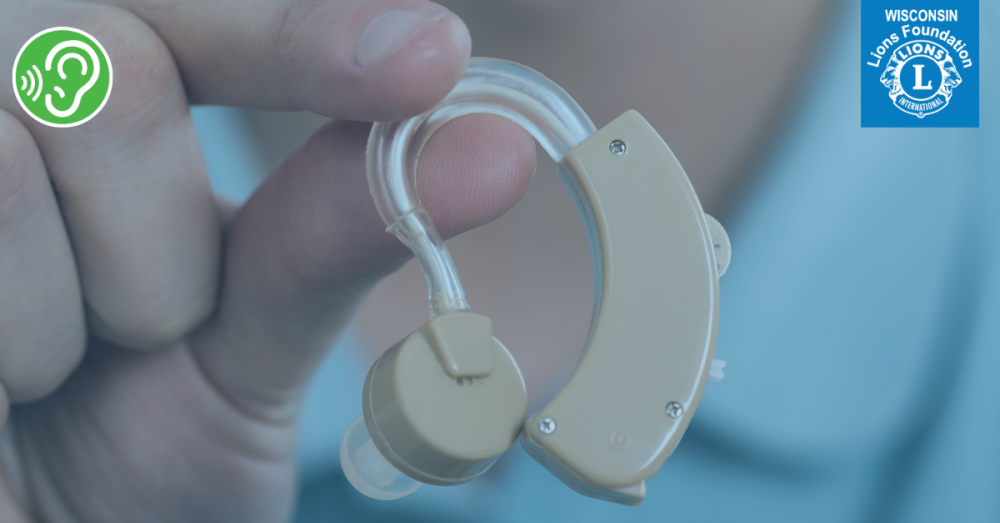If you or someone you know has struggled with hearing loss, you are not alone. In fact, new data from the World Health Organization estimates by 2050, 2.5 billion people will be living with some degree of hearing loss.
Hearing is a core component of participating in everyday life. From enjoying leisure activities to performing at work, and maintaining strong personal relationships, hearing is an essential aspect of maintaining a connection with one’s environment. Once this connection is cut off, it can have a detrimental effect on a person’s mental, emotional, and physical well-being.
If you or someone you love has considered hearing aids, this article will answer common questions about what makes hearing aids a great choice for assisting with hearing loss. We will discuss hearing loss’s impacts on overall health; when to seek help for hearing loss; the financial impact of hearing aids; and how to get support with purchasing hearing aids.
The Impact of Hearing Loss on Overall Health
While hearing loss is often preventable with careful measures, some individuals are born with hearing loss, and others live or work in environments that make them more prone to hearing loss. When unaddressed, hearing loss negatively impacts many areas of life, including speech development in children, communication, education, employment, mental health, and interpersonal relationships.
What effects does this have on overall health? Hearing loss makes it more difficult to converse with loved ones, engage with coworkers, and enjoy simple pleasures in life like watching your favorite movie or listening to music. Due to this, hearing loss is associated with depression, social isolation, balance problems, and even brain atrophy and dementia.
When to Seek Help For Hearing Loss
There are links to brain health and reduced quality of life in those suffering from hearing loss, which is why it is so important to seek help promptly.
Many individuals who suffer from hearing loss wait to seek help – an average of 7 years – potentially prolonging their suffering and reducing their options for rehabilitative therapy. As soon as you notice hearing loss in you or someone you love, schedule a check-in with a doctor who can run hearing tests. Don’t wait until hearing loss negatively affects your daily life! Remember, seeking solutions to enhance your hearing can also protect other areas of your health.
There are many options for support available to those with hearing loss. Captioning services for enjoying videos or movies, hearing assistive technology, and rehabilitative therapy are all non-invasive options to address hearing loss symptoms. More advanced hearing loss may require access to sign language, medicines, surgery, or hearing aids and implants. A doctor will be able to assess what option is most fitting for each person’s unique needs.
How Much Do Hearing Aids Cost?
If medical advice points to the need for hearing loss assistance devices, you might be wondering how much hearing aids cost to purchase. Unfortunately, advanced hearing technology can be expensive, posing a barrier to accessible ear and hearing care.
The average cost of just one hearing aid is between $1,500-$4,000 per hearing aid, depending on the technology and fit. Some hearing aids also require a doctor’s prescription, potentially making them less available. Additionally, many insurance companies do not provide coverage for hearing aids.
Financial Assistance for Purchasing Hearing Aids:
Due to the high cost of hearing aids, there are financial assistance programs available in Wisconsin. One of these programs is the Wisconsin Lions Foundation Hearing Project.
The Wisconsin Lions Foundation provides hearing aids to Wisconsin residents who are hard of hearing and cannot afford to purchase these hearing instruments on their own. Individuals who do not qualify for existing state-funded financial assistance programs may apply.
The success of the WLF Hearing Project relies on a collaborative effort and the generosity of the Wisconsin Lions, hearing healthcare professionals and hearing aid manufacturers. The Wisconsin Lions Foundation collects used hearing aids that are turned in for credit to one of the many hearing aid manufacturers they work with, allowing the Foundation to purchase brand new hearing aids. The other sources of income to pay for new hearing aids is provided by Lions Clubs and/or individual Districts. These hearing aids are then available to the public at a reduced cost or no cost, based on need assessed by a financial assistance application.
The Wisconsin Lions Clubs have Hearing Chairs in each District who review these applications and award assistance based on need and finances.
Still Considering Hearing Aids? Apply for Hearing Aid Assistance
The benefits of seeking assistance for hearing loss far outweigh the negative effects of postponing help. If you or someone you know requires hearing assistance, don’t hesitate to reach out to the Wisconsin Lions Foundation Hearing Project and take the first step toward a brighter, more audible future.
You can find the hearing aid financial assistance application on the Wisconsin Lions Foundation Resources webpage.
Sources:
1. World Health Organization World Report on Hearing.
2. John Hopkins Medicine The Hidden Risks of Hearing Loss
3. Hearing Loss Association of America Hearing Loss Facts and Statistics

